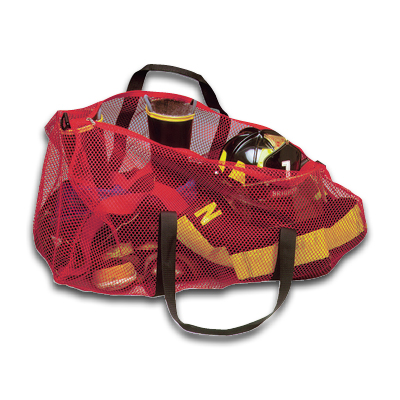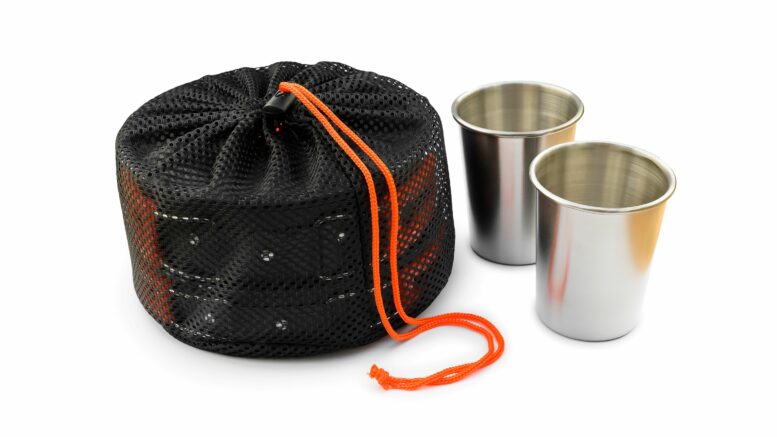Why Mesh Bags Work in Some Industries
Mesh bags might seem like a simple product, but in certain industries, they serve a vital purpose. From firefighting to ocean diving, the need to store, transport, and air out gear efficiently is critical to safety, hygiene, and equipment longevity. At Fieldtex, we’ve been offering mesh bag manufacturing for clients who need their gear to breath a little when not in use.
Life as a Mesh Bag Manufacturer in the US
As a U.S.-based contract sewing company with decades of experience, mesh bags are one of our more specialty offerings. Though they represent a small slice of our bag business, they consistently come from customers with a very specific need. These customers are in gear-intensive industries, we deliver custom mesh bags that provide breathability and durability.
Why Mesh Bags Are Simple in Theory—But Not in Practice
At first glance, mesh bags appear easy to manufacture. However, building a mesh bag that stands up to rugged use is more technically demanding than it seems. When sewing mesh into a bag, you’re usually attaching it to a solid piece of fabric and covering the seam with a binding strip to strengthen the stitch and keep it from unraveling.
But when you’re making a bag entirely out of mesh, that reinforcement gets trickier. There’s no solid fabric to anchor to, so the seams must be bound to themselves. This means using a folded piece of fabric binding—typically about 1 inch wide—to cover and reinforce every seam, ensuring that every stitch bites into something secure. Without this, each seam becomes a potential failure point every 2 millimeters or so and that’s not gonna work well.
Whether you’re constructing a duffle-style body or a squared box design, the seams must be carefully bound to hold up under stress, weight, and moisture. This extra layer of construction makes the difference between a failing mesh sack and a bag that can be trusted on the job.
Mesh Bags for Firefighting Turnout Gear
One of our most prominent mesh bag clients is a company that produces turnout gear for the firefighting industry. Firefighting gear gets saturated with smoke, soot, and water in the line of duty. Without proper ventilation, that gear can collect odors, bacteria, and moisture damage.

Our solution? Large-capacity mesh bags specifically shaped to hold full sets of turnout gear. These bags enable off-gassing and drying, even when gear is stored outdoors or in transport. Reinforced seams and breathable mesh fabric ensure the bags won’t rip under the weight of wet, bulky gear. We work directly with our clients to refine every stitch.
Custom Dive Bags: Keeping Salt and Moisture at Bay
In the diving world, soaked gear is a fact of life. Wetsuits, fins, masks, and regulators need to dry fast to prevent mildew and bacteria. Sealing this gear in a non-breathable bag is a recipe for mold.
That’s why a dive gear manufacturer contracted us to produce mesh bags shaped for specific pieces of equipment. These designs allow divers to rinse their gear directly inside the bag—saving time and preserving the gear. These bags are tough enough to survive the rigors of boats, docks, and beaches, while still offering the ventilation needed to dry quickly.
Other Uses: Mesh Bags on the Move
While firefighting and diving are our biggest markets for mesh bags, we’ve also worked with customers in sports, recreation, and industrial applications. Coaches use oversized mesh ball bags for easy transport and drying. We’ve also produced mesh cases for industrial customers who need lightweight, breathable containers for parts or tools. sometimes we make a full mesh bag other applications require a carrying case with one mesh wall.
If your gear needs airflow, quick visibility, or a lightweight storage option, mesh bags are a great fit.
Why Mesh Works: Breathable, Strong, and Smart
Mesh materials offer an ideal balance of airflow and strength. They prevent mold, mildew, and odor while protecting expensive gear from damage caused by trapped moisture. Plus, with options for custom sizing, reinforced straps, and rugged stitching, mesh bags can be built to handle almost anything.
From a manufacturing standpoint, quality mesh bag production requires careful material selection and precise sewing techniques. Our in-house team ensures bags are not only functional, but also able to withstand real-world abuse—especially when wet.
Why Work With a Domestic Mesh Bag Manufacturer?
Working with a U.S.-based manufacturer like Fieldtex means quicker communication, faster prototyping, and greater quality control. We understand the standards required in industries like public safety and recreation—and we’re ready to meet them.
Whether you need to improve an existing design or start from scratch, we bring hands-on experience and a problem-solving mindset to every project.
Let’s Build the Right Mesh Bag Together
Have an idea for a custom mesh bag or a problem your current design isn’t solving? Let’s work together to build a solution. Contact us today for a free consultation and see how our mesh bag manufacturing capabilities can support your mission-critical gear.

